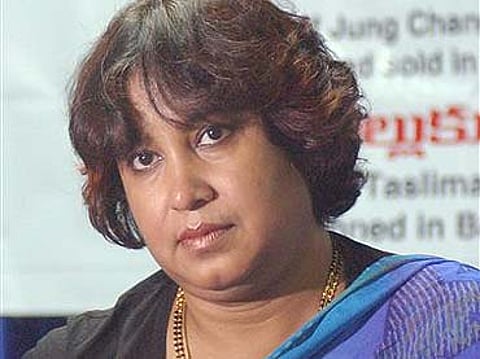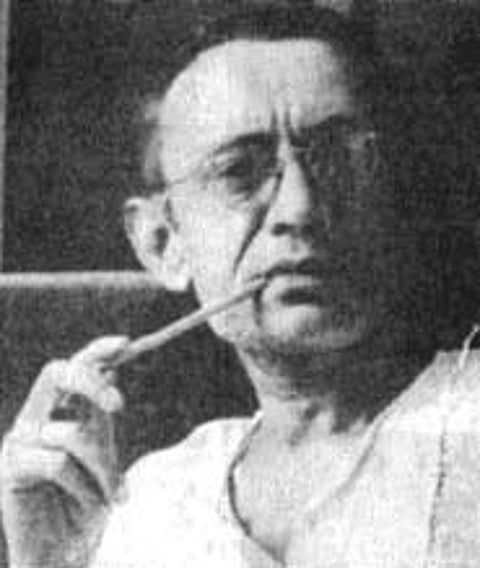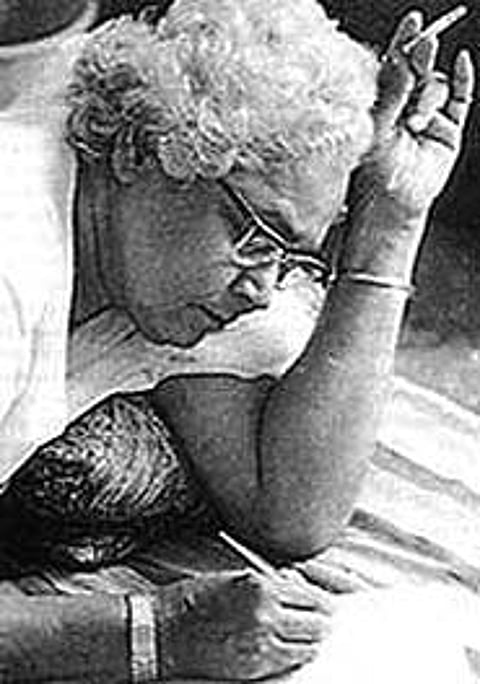A Forgotten History
In 1932, a young woman named Rashid Jahan was denounced by some clerics and threatened with disfigurement and death. A doctor by training like Taslima Nasreen, she too had written about seclusion, sexual oppression and female suffering in a patriarc
What has changed in three quarters of a century? Periodically, we witnesszealots of all faiths shouting hysterically about 'insults' to religioussentiments and being backed by the state while little is done to address moreserious material injustices that affect members of their community.

But in the light of the Taslima Nasreen controversy, the Angarey story hasparticularly ironic resonances. For Rashid Jahan and two of her co-contributors,Mahmuduzzafar and Sajjad Zaheer, were members of the Communist Party of Indiawho would go on to help found the Progressive Writers Association (PWA) in 1936.The PWA was to be a loose coalition of radical litterateurs, both party membersand 'fellow travelers', who would challenge all manner of orthodoxies and putsocial transformation on the literary map of India. Unsurprisingly, many PWA-linkedwriters had run-ins with the law, constantly fending off charges of obscenity,blasphemy and disturbing the peace. Challenging these attacks with braveeloquence, they defended the task of the writer as one of pushing social andimaginative boundaries. The then beleaguered undivided CPI too faced constantattacks, including censorship, trials and an outright ban.
Today, heirs of that same Communist party, the CPI(M), find themselves on thesame side with the state and religious orthodoxies whose excesses they oncechallenged. Their actions shore up anti-democratic authoritarianism, whetherthis takes the form of corporate land-grabbing, the suppression of popularprotest, or religious chauvinism. In response to criticism from progressivequarters, they invoke the subterfuge of 'left unity' which forbids criticismbecause this will provide grist for the opposition's mills. A pro-CPI(M) statement signed by the likes of NoamChomsky and Tariq Ali (with, one can only presume, the airy historicalcarelessness that even the best intellectuals in the West are sometimes proneto) warns against 'splitting the left'. With the unmistakable timbre of a Partypamphlet, it goes on to suggest that all is now well in Nandigram and'reconciliation' with the dispossessed is fast being effected. (How do theyknow?). Meanwhile, many CPI(M) leaders parrot the conservative statistline that Taslima is free to stay in India if she behaves herself and refrainsfrom 'hurting religious sentiments'. But those oppressed by religiousorthodoxies, like women and Dalits, often have no choice but to speak of howthose very sentiments are used against them.

Both Chughtai and Manto insisted on intellectual independence and the continuing needto address gender and sexuality, subjects which the Party began to frown upon.Accordingly, they found themselves attacked not only by the state but also byhardliners in the PWA who dutifully denounced the 'perversions' of writing aboutthe body and its desires as well as prostitution and sexual violence.Justifiably annoyed, Manto (who fought five cases on 'obscenity' charges) wrotean essay sharply titled 'Taraqqi-Pasand Socha Nahin Karte' [Progressives Don'tThink] in which he deplored the unthinking adherence to prudish literarycategories which allowed him and others to be denounced as 'individualists' and'pornographers.'

Of obscenity charges Chughtai asks: 'Don't you see that thewriter himself is trembling fearfully and is terrified of the world's obscenity?All he's doing is converting events that are taking place in the world intowords.'
Today, this unwillingness to examine received ideas emerges in party leaderSitaram Yechury's firm endorsement of 'certain conditions' on Taslima if she isto stay, including 'refraining from…activities and expressions that may hurtthe sentiments of our people', whatever 'our' means in a remarkablyheterogeneous society that can take pride in allowing dissent. Theobviously opportunistic attack from the BJP allows more relevant criticism ofthe CPI(M) from progressive people and the broad, non-party left to be ignored,all of it thrown into the same basket of 'belittling…the present-influence ofthe Left in the country.' Used in this self-exculpatory way, 'anti-communistprejudice' is no more meaningful a mantra than 'anti-American' enabling allcriticism to be dismissed as malicious. This denigrates not only those on theleft who are unwilling to countenance the CPI(M)'s recent betrayals of humanevalues and social justice goals, but also older communists like RashidJahan who came under vicious attack precisely for speaking their mind againstinjustices, including those inflicted by religion. However much we maydeplore the BJP's obvious hypocrisies in denouncing 'pseudo-secularism', thefact remains that the actions of the CPI(M) serve to undermine the credibilityof those who have stood up more consistently for pluralism and secularism.Moreover, the depredations of the right-wing should not serve as an alibi formisconduct by those who rightly oppose them.
When CPI(M) leaders commend the withdrawal of passages from Taslima's bookand insist on the objectionable nature of some of her writing, they would dowell do remember that a good many people in this world claim to find communismprofoundly objectionable, even deeply offensive to their most cherishedsentiments. The right of the left more generally to articulate critique andopposition has been hard won and remains under siege in many parts of the world.
India needs nothing more than a genuine and strong left. But this will not beforged by dishonouring one's own more radical past, covering up mistakes andrewriting recent history. In a second, modified statement, Chomskyet al have qualified their support for the CPI(M) and indicate that theywere simply exhorting the left in India to 'unite and focus on the morefundamental issues that confront the Left as a whole'. In theory, this is a goaldevoutly to be wished for. And yet, it is not one that can be accomplished atthe cost of self-criticism and silence. We can do no better than to follow theprinciple always advocated by the late Edward Said, a left intellectual andactivist of the highest integrity in these matters: 'Never solidarity beforecriticism.' It is only in so doing so that we honour the history of genuinelyoppositional movements in India and elsewhere.
Priyamvada Gopal, the author of Literary Radicalism in India, isSenior Lecturer of English, University of Cambridge
Tags